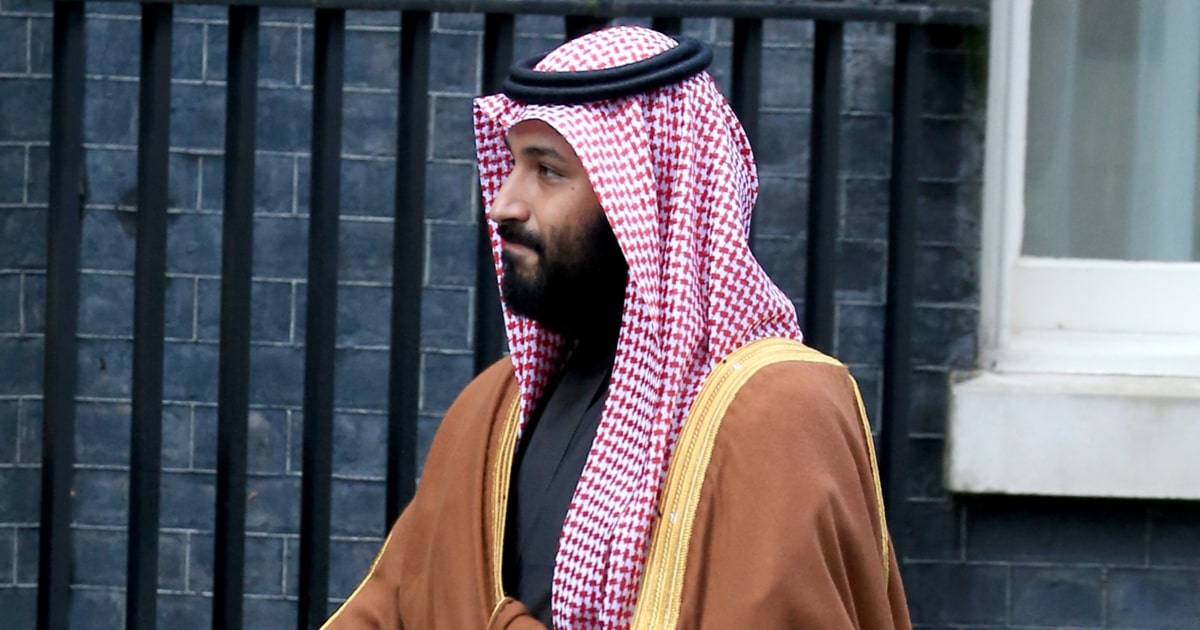Saudi Arabia’s New Geostrategic Doctrine
The resumption of diplomatic relations between Saudi Arabia and Iran signals the Saudis’ reassessment of their geostrategic interests.
May 4, 2023

A Global Ideas Center, Strategic Assessment Memo (SAM) from the Global Ideas Center
You may quote from this text, provided you mention the name of the author and reference it as a new Global Ideas Center, Strategic Assessment Memo (SAM) published by the Global Ideas Center in Berlin on The Globalist.
The resumption of diplomatic relations between Saudi Arabia and Iran, and the Saudis’ diplomatic overtures toward Syrian President Bashar al-Assad, are part and parcel of the Saudis’ overall reassessment of their geostrategic interests.
They rest on three distinctive goals: Regional stability, exerting greater regional and international influence and uninterrupted oil exports. These three fundamental goals are tightly linked and are within the Saudis’ reach.
Regional stability
The resumption of diplomatic relations between Saudi Arabia and Iran mediated by China was central to its strategy. Both countries have come to the conclusion that notwithstanding their enmity and regional rivalry, they have to coexist in one form or another.
They realized that the eight-year-long war in Yemen has done nothing to improve their regional standing. It was a lose-lose proposition. Iran failed to establish a strong and permanent foothold in the Arabian Peninsula and although Iran continues to support the Houthis, they have no illusion about converting Yemen into an Iranian satellite.
Saudi Arabia, on the other hand, having prevented Iran from dominating Yemen, no longer feels that the continuation of the war will yield any further benefit regardless of how much more money and human resources they pour into the war effort.
This explains why they have agreed on the ceasefire and further extended it until they could find a mutually accepted solution. The resumption of diplomatic relations would accelerate this reconciliation process.
Nothing guaranteed
This, needless to say, is not guaranteed because the adversarial relations between the two countries run deep, but their national interest resulting from their rapprochement overrides, for the time being, those concerns.
Both sides know that it will take time to fully normalize relations while testing each other’s true intentions as well as their conduct.
For the same reason, the Saudis decided that Syria’s President Assad is not going anywhere. He has weathered the most devastating war since the last World War, albeit at the expense of destroying half of the country while inflicting massive suffering on nearly half of Syria’s population.
Millions are still refugees languishing in camps in many countries in the region, especially in Turkey, and millions more are still internally displaced. Thus, mending relations with Syria will be a win-win for the Saudis as this would only enhance its influence.
Regional influence
The Saudis fully understand that they cannot boost their regional influence by remaining disengaged from their neighbors. Given Iran’s nuclear weapons program and the Saudis’ extreme concerns, the resumption of diplomatic relations could potentially ease those apprehensions.
How the Saudis can help change the dynamic of Iran’s nuclear program remains to be seen. One thing however is certain: The Saudis have placed themselves where they can potentially bring Iran back to negotiating with the United States, albeit indirectly.
Whether or not they succeed, they can still exert greater influence in this area by engaging Iran, which they did not have before.
And to further exert regional influence, the Saudis wisely decided to invite Syria’s Assad to the Arab League summit that Riyadh is hosting in May.
Syria was suspended from the organization in 2011, and was sanctioned by many Western powers and Arab states because of Assad’s fierce onslaught against protesters that led to a long, drawn-out civil war during which more than 600,000 lost their lives.
Important signals
The Saudi invitation certainly signals an extremely important development that will bring about the reintegration of Syria into the Arab fold—a move that would lead to the resumption of full diplomatic relations between the two countries.
There is no doubt that other Arab states will follow suit, which only strengthens Saudi Arabia’s leadership role among its fellow Arab countries.
By reopening diplomatic relations with both Iran and Syria, the Saudis will have a say about any future settlement to the Syrian conflict, where Iran still exerts considerable influence.
Deep pockets
Given that the Saudis have deep pockets and the Syrian regime is in dire economic straits and needs tens of billions to rebuild, the Saudis can do a great deal more than Iran to provide financial aid to Syria. And, of course, with financial aid comes influence.
President Assad is more than eager to cooperate not only for the critically important financial aid, but also to begin the process of ending Damascus’ isolation.
Restoring diplomatic relations between Syria and the other Arab states will contribute significantly to calming the region and making it possible for Saudi Arabia to sustain its ability to supply oil in huge quantities without interruption.
Uninterrupted oil export
For the Saudis, continuing to export oil in enormous quantities and the revenues it generates are central to the country’s objective of becoming a regional player to be reckoned with.
Having the largest reservoir of oil gives the Saudis significant advantages, as many of its oil customers know they can rely on the Saudis for energy supplies for many years to come.
Thus, its resumption of diplomatic relations with Iran and Syria and financially aiding other Arab states like Egypt, would invariably contribute to stabilizing the region and in turn allow the Saudis to continue their oil exports with the least interruptions.
None of the above however will impact adversely the Saudis’ relationship with the United States, nor its tacit relations with Israel. The Saudis are fully aware of the United States’ critical role in both, as the main supplier of weapons to the kingdom and the region’s ultimate security guarantor.
Moreover, regardless of its discord with Israel regarding the Palestinian conflict, Saudi Arabia’s tacit cooperation with Israel on intelligence sharing and transfer of Israeli technology is and will remain an integral part of its geostrategic objective.
Dual objectives
Riyadh wants to develop inroads into both its past adversaries including Iran and Syria while maintaining its current relations with the United States and Israel, regardless of the occasional ups and downs among them.
At the same time, Riyadh is cementing its bilateral relations with China, the world’s second-largest superpower to which Saudi Arabia exports one quarter of its annual oil output ($43.9 billion’s worth in 2021, out of $161.7 billion in total exports), while becoming the de facto leader of the Arab states.
To be sure the Saudi Arabia has, thus far, been able to successfully utilize its wealth to its advantage. Needless to say, however, many external and regional occurrences could directly and indirectly impact Saudi Arabia’s new geostrategic calculus.
They include the Ukraine war, the growing tension between the United States and China and Russia, and the ongoing Israeli-Palestinian conflict. However, under any circumstances the Saudis stand to gain, as time and circumstances are on their side.
Takeaways
The resumption of diplomatic relations between Saudi Arabia and Iran signals the Saudis’ reassessment of their geostrategic interests.
Saudi Arabia’s geostrategic interests rest on three distinctive goals -- regional stability, exerting greater regional and international influence and uninterrupted oil exports.
Both Saudi Arabia and Iran have come to the conclusion that, notwithstanding their enmity and regional rivalry, they have to coexist in one form or another.
The Saudis decided that Syria’s President Assad is not going anywhere. He has weathered the most devastating war since the last World War -- albeit at the expense of destroying half of the country.
Riyadh wants to develop inroads into its past adversaries including Iran and Syria while maintaining its current relations with the US and Israel -- regardless of the occasional ups and downs among them.
Regardless of its discord with the country regarding the Palestinian conflict, Saudi Arabia’s tacit cooperation with Israel on intelligence sharing and technology transfer will remain an integral part of its geostrategic objective.
For Saudi Arabia, continuing to export oil in enormous quantities and the revenues it generates are central to the country’s objective of becoming a power broker to be reckoned with.
A Global Ideas Center, Strategic Assessment Memo (SAM) from the Global Ideas Center
You may quote from this text, provided you mention the name of the author and reference it as a new Global Ideas Center, Strategic Assessment Memo (SAM) published by the Global Ideas Center in Berlin on The Globalist.


